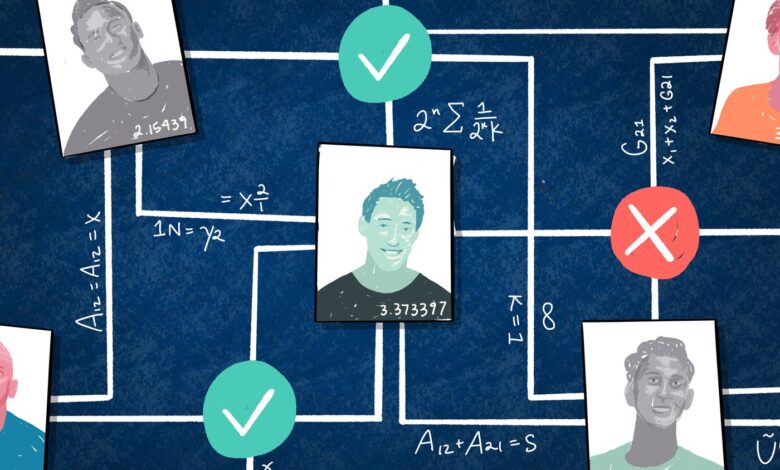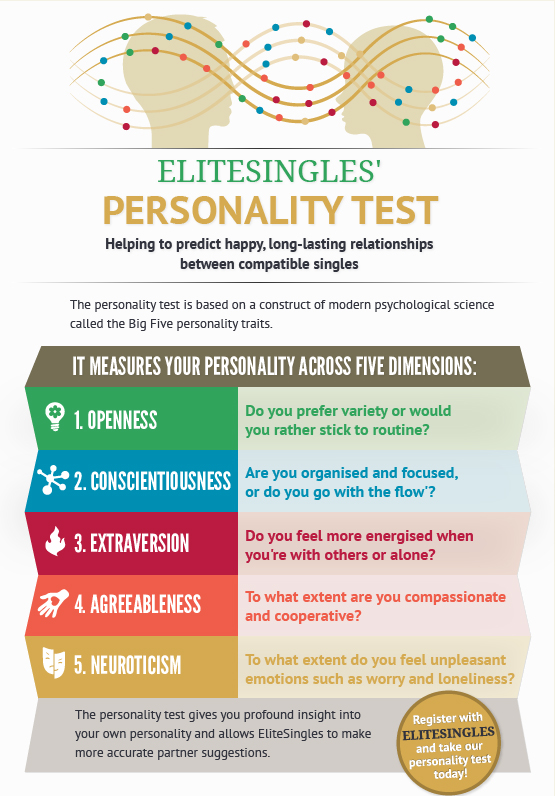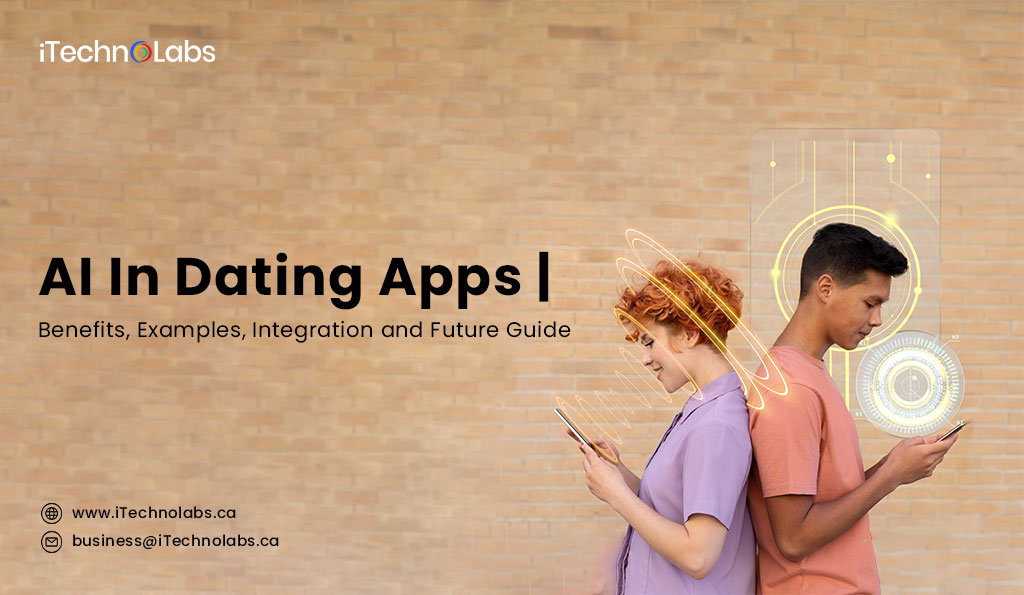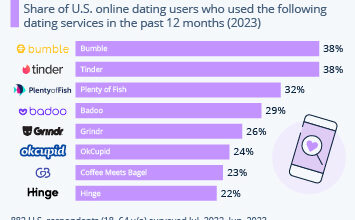The Science Behind Compatibility Matching on Dating Websites

/cdn.vox-cdn.com/uploads/chorus_asset/file/13743484/image.jpeg)
Understanding Compatibility Matching on Dating Websites
What is Compatibility Matching?
Compatibility matching on dating websites refers to the process of using algorithms to pair individuals based on various factors such as personality traits, values, interests, and relationship goals. These algorithms analyze data provided by users in their profiles to suggest potential matches that align with their preferences.
Importance of Compatibility Matching in Online Dating
The importance of compatibility matching in online dating cannot be overstated. By utilizing this technology, dating websites can enhance the user experience by presenting individuals with potential partners who are more likely to be compatible with them. This increases the chances of forming meaningful connections and successful relationships. Compatibility matching reduces the time and effort required to sift through numerous profiles, allowing users to focus on interacting with those who are genuinely compatible with them.
Table: Compatibility Matching vs. Traditional Dating
| Aspect | Compatibility Matching | Traditional Dating |
|---|---|---|
| Matching Algorithm | Uses algorithms to suggest matches | Relies on personal judgment |
| Efficiency | Saves time by presenting potential matches | Requires manual search and filtering |
| Success Rate | Higher chance of forming compatible relationships | Relies on chance and trial-and-error |
| User Satisfaction | Increases user satisfaction by connecting with like-minded individuals | Results may vary based on personal preferences |
In summary, compatibility matching is a valuable tool in online dating that facilitates the process of finding compatible partners, ultimately increasing the likelihood of successful and fulfilling relationships.

Factors Considered in Compatibility Matching
Personality Traits
Compatibility matching takes into account personality traits such as introversion, extroversion, openness, agreeableness, and conscientiousness. By analyzing these characteristics, dating websites can suggest matches that have complementary personality traits, increasing the likelihood of a harmonious relationship.
Interests and Preferences
Another crucial factor in compatibility matching is individuals’ interests and preferences. This includes hobbies, activities, values, and relationship goals. By aligning these aspects, dating websites can connect individuals who share similar interests and goals, fostering a deeper connection from the start.
In summary, compatibility matching on dating websites utilizes algorithms to pair individuals based on personality traits, interests, values, and relationship goals. By considering these factors, dating platforms can enhance the user experience and increase the chances of forming meaningful connections and successful relationships.

Technology Behind Compatibility Algorithms
Data Analysis and Machine Learning
Technology behind compatibility algorithms relies on **data analysis** and **machine learning** techniques to process vast amounts of user information. By analyzing user profiles, interactions, and feedback, dating platforms can identify patterns and correlations that lead to successful matches. Machine learning algorithms continuously refine their matchmaking processes based on user behavior and preferences, improving the accuracy of suggested matches over time.
Psychometric Assessments
In addition to data analysis, compatibility algorithms often incorporate **psychometric assessments** to evaluate personality traits and compatibility factors. These assessments provide insights into individuals’ psychological characteristics, helping dating websites generate more precise match suggestions. By combining psychometric assessments with data analysis, platforms can offer users tailored recommendations that align not only with their preferences but also with their underlying personality traits.
In summary, the technology behind compatibility algorithms integrates data analysis, machine learning, and psychometric assessments to enhance the matchmaking process on dating websites. By leveraging these technologies, platforms aim to improve the accuracy of matches, ultimately increasing the likelihood of users finding meaningful and lasting connections.

Benefits of Compatibility Matching
Higher Success Rates in Relationships
The technology behind compatibility algorithms employs data analysis and machine learning to enhance matchmaking processes on dating platforms. Through the analysis of user profiles and interactions, these algorithms identify patterns for successful matches. Incorporating psychometric assessments further refines match suggestions by evaluating personality traits. As a result, users experience higher success rates in forming meaningful connections and lasting relationships due to the tailored recommendations aligned with their preferences and underlying traits.
Improved User Experience on Dating Platforms
By leveraging data analysis, machine learning, and psychometric assessments, dating websites provide users with an improved experience. The algorithms continuously refine match suggestions based on user behavior, increasing the accuracy over time. Users benefit from personalized recommendations that cater not only to their preferences but also their psychological characteristics. This enhanced user experience leads to a more efficient and satisfactory matchmaking process, ultimately facilitating the search for compatible partners.

Challenges in Compatibility Matching
Bias and Inaccuracies
Compatibility matching algorithms, despite their advancements, face challenges related to bias and inaccuracies. The data used to train these algorithms may contain inherent biases, leading to skewed match recommendations. Additionally, inaccuracies can arise due to the complexity of human behavior, which is not always fully captured by the algorithms. This can result in mismatches or missed connections, impacting the overall success rates of relationships facilitated through these platforms.
Ethical Concerns
Another significant challenge in compatibility matching revolves around ethical considerations. The use of personal data, particularly sensitive information obtained through psychometric assessments, raises concerns about user privacy and consent. There is a growing need for transparent policies regarding data usage and protection to ensure user trust and compliance with regulations. Ethical dilemmas also stem from the potential manipulation of user behavior based on algorithmic recommendations, highlighting the importance of ethical frameworks in the development and implementation of compatibility matching technologies.
/cdn.vox-cdn.com/uploads/chorus_asset/file/13743484/image.jpeg)
Popular Compatibility Matching Algorithms Used
eHarmony’s Compatibility Matching System
eHarmony’s Compatibility Matching System is a prominent algorithm that aims to connect individuals based on a range of dimensions such as personality traits, values, and interests. The system utilizes a thorough questionnaire to gather data and generate matches that align with users’ preferences. While eHarmony emphasizes the importance of compatibility in long-term relationships, some users may find the matching process lengthy due to the detailed nature of the assessments.
OkCupid’s Question-Based Matching
OkCupid utilizes a question-based matching algorithm that considers users’ responses to various questions to determine compatibility. By assigning weights to different questions based on their significance, OkCupid offers match suggestions that align with users’ values and beliefs. This approach allows for a more interactive and engaging matching experience, as users can see how their responses compare to others and better understand the rationale behind suggested matches.
In the realm of compatibility matching algorithms, eHarmony’s systematic approach and OkCupid’s interactive question-based method stand out as popular choices for individuals seeking meaningful connections online.

User Experience and Feedback
Personalized Matches
When considering **eHarmony’s Compatibility Matching System**, users often appreciate the personalized touch of matches based on a comprehensive questionnaire. This approach can lead to more compatible connections, but some may find the process time-consuming. On the other hand, **OkCupid’s Question-Based Matching** offers a more interactive experience where users can see how their answers influence match suggestions, providing a deeper insight into compatibility factors.
User Satisfaction and Success Stories
**eHarmony** users who prioritize long-term compatibility may find success with the platform’s algorithm, leading to high user satisfaction among those seeking serious relationships. Conversely, **OkCupid** users may value the transparency in match suggestions and enjoy sharing success stories based on their interactive matching experience. Both platforms receive positive feedback on their matching algorithms from users seeking meaningful connections online.

Future Trends in Compatibility Matching
Integration of Artificial Intelligence
As compatibility matching platforms evolve, the integration of **Artificial Intelligence** is becoming increasingly prevalent. **eHarmony** and **OkCupid** are exploring AI-driven solutions to enhance their matching algorithms further. By analyzing user behavior and preferences, AI can provide more accurate and tailored match suggestions, increasing the likelihood of successful connections. This trend signals a shift towards more sophisticated and precise matchmaking processes in the online dating landscape.
Enhanced Matchmaking Techniques
In the realm of online dating, the focus on improving **matchmaking techniques** is paramount for platforms like **eHarmony** and **OkCupid**. These platforms are investing in innovative methods to fine-tune their algorithms and offer users a more seamless matching experience. By incorporating advanced data analysis and user feedback loops, these platforms aim to provide even more compatible and satisfying matches. The future holds exciting possibilities for enhanced matchmaking techniques that prioritize user experience and relationship success.

Future Trends in Compatibility Matching
Integration of Artificial Intelligence
As compatibility matching platforms evolve, the integration of **Artificial Intelligence** is becoming increasingly prevalent. **eHarmony** and **OkCupid** are exploring AI-driven solutions to enhance their matching algorithms further. By analyzing user behavior and preferences, AI can provide more accurate and tailored match suggestions, increasing the likelihood of successful connections. This trend signals a shift towards more sophisticated and precise matchmaking processes in the online dating landscape.
Enhanced Matchmaking Techniques
In the realm of online dating, the focus on improving **matchmaking techniques** is paramount for platforms like **eHarmony** and **OkCupid**. These platforms are investing in innovative methods to fine-tune their algorithms and offer users a more seamless matching experience. By incorporating advanced data analysis and user feedback loops, these platforms aim to provide even more compatible and satisfying matches. The future holds exciting possibilities for enhanced matchmaking techniques that prioritize user experience and relationship success.
Conclusion
Summary of Compatibility Matching on Dating Websites
When considering the future of compatibility matching on dating websites, it is evident that platforms like **eHarmony** and **OkCupid** are embracing advancements such as Artificial Intelligence and enhanced matchmaking techniques to improve user experiences.
Implications for the Future of Online Dating
These developments signal a shift towards more accurate and tailored match suggestions, ultimately increasing the likelihood of successful connections. As online dating continues to evolve, the focus on enhancing matchmaking processes will play a crucial role in shaping the landscape of digital romance.




